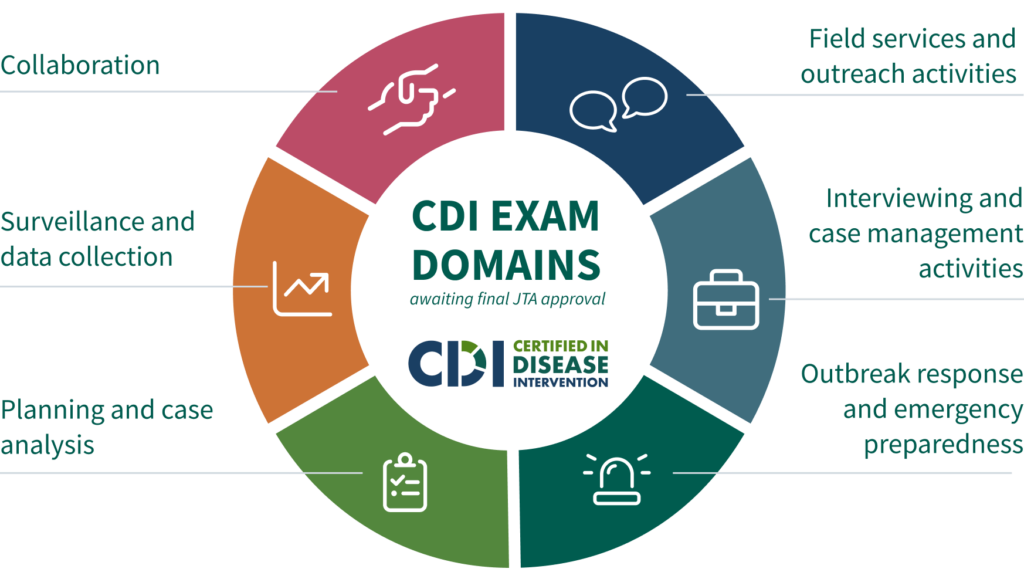Disease Intervention
Disease Intervention professionals provide a range of services to ensure that everyone has access to testing, treatment, and prevention resources. The daily work of disease intervention professionals includes case investigation, contact tracing, and partner services to support people diagnosed with or possibly exposed to infectious diseases.

Working with People Diagnosed with an Infectious Disease
When someone tests positive for a communicable disease, members of the disease intervention (DI) workforce play a vital role in supporting the individual and preventing further spread. DI professionals provide education and linkages to health care services such as reproductive and prenatal care, vaccinations, and other supportive services including behavioral health and wellness programs. They may also link individuals to community-based resources such as housing assistance, legal aid, and food pantries.
A key component of DI professional work is conducting interviews to determine whether others may have been exposed to the disease. Disease intervention professionals are required to protect individual privacy by keeping all information provided during interviews strictly confidential.

CONTACT TRACING, CASE MANAGEMENT, and PARTNER SERVICES
These are the core strategies used by disease intervention professionals to prevent the spread of communicable disease and support affected individuals:
Partner Services: Focuses on notifying sexual or needle-sharing partners of individuals diagnosed with a sexually transmitted infection (STI). Partners are offered education, prevention counseling, testing, treatment, and referrals to health care and community resources. Confidential interviews may also be conducted with partners to identify others who may have been exposed.
Contact Tracing: (non-STI communicable diseases): Involves identifying and notifying individuals who may have been exposed to diseases such as tuberculosis, hepatitis, or COVID-19. The goal is to ensure timely testing, treatment, and prevention to stop further transmission.
Case management: Includes the broader support provided to individuals affected by communicable diseases. This may include helping individuals navigate the health care system, adhere to treatment, and access supportive services like housing, food, or legal aid. Case management can apply in both STI and non-STI contexts, depending on the needs of the individual.
